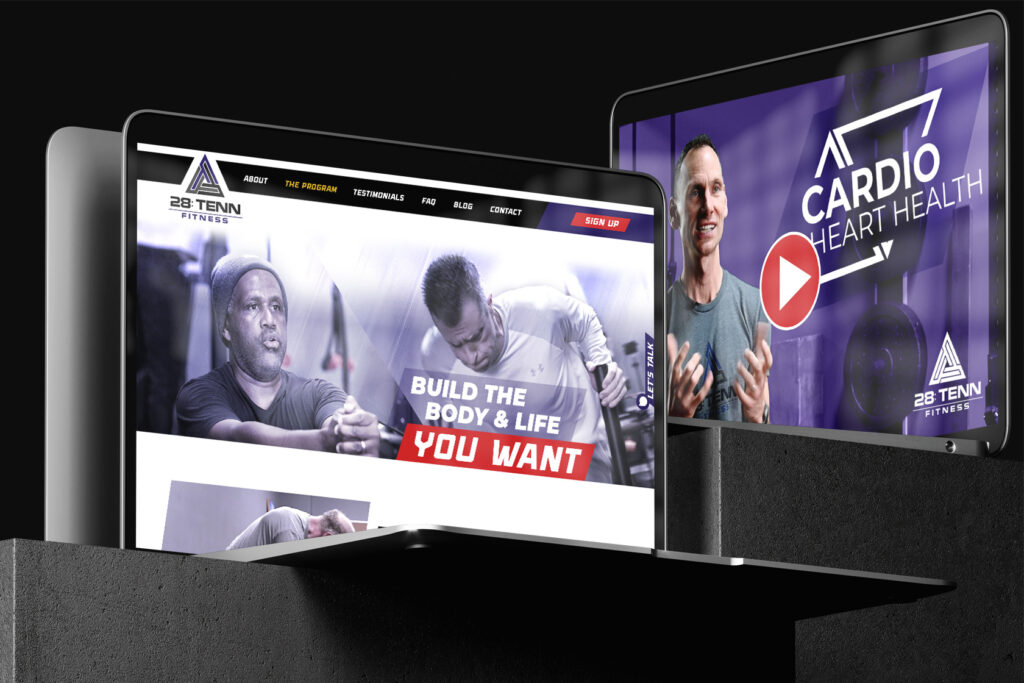
Having a robust online presence is no longer optional—it’s essential. Website marketing is the key to distinguishing your business from the competition and reaching your target audience effectively. Let’s talk about how strategic website marketing can set you apart and drive your business toward success.
Website marketing involves optimizing your website, creating engaging content, utilizing social media, and leveraging search engine optimization (SEO) to attract and convert visitors. By focusing on website marketing, you can build brand awareness, engage with your audience, and drive more sales.
A well-designed, user-friendly website can make a significant impact on your business. Here are some key elements to focus on:
A seamless user experience is crucial for keeping visitors on your site. Ensure your website is easy to navigate, mobile-friendly, and fast-loading. Clear calls-to-action (CTAs) guide users to take the desired actions, whether it’s making a purchase, signing up for a newsletter, or contacting you.
Invest in a visually appealing design that reflects your brand’s identity. Use high-quality images, consistent branding, and an intuitive layout to create a professional and inviting atmosphere. A visually appealing website can enhance user engagement and encourage visitors to stay longer.
High-quality, relevant content is the backbone of website marketing. Create informative blog posts, videos, infographics, and other types of content that address your audience’s needs and interests. Regularly updating your content keeps your site fresh and encourages return visits.
Search engine optimization (SEO) is a critical component of website marketing. By optimizing your site for search engines, you can increase its visibility and attract organic traffic. Here are some SEO strategies to implement:
Identify relevant keywords for your business and industry. Focus on long-tail keywords that are more specific and have a higher chance of conversion.
Optimize your website’s pages with targeted keywords. Include keywords in your titles, headings, meta descriptions, and content. Ensure your URLs are clean and descriptive. Use alt text for images and internal linking to improve site navigation and search engine indexing.
Build high-quality backlinks from reputable websites. Backlinks act as endorsements, signaling to search engines that your site is trustworthy and authoritative. Guest blogging, partnerships, and influencer collaborations can help you acquire valuable backlinks.

Content marketing plays a vital role in website marketing. By creating valuable and engaging content, you can attract, educate, and convert your audience. Here are some content marketing strategies to consider:
Regularly publish blog posts on topics relevant to your industry and audience. Share insights, tips, and industry news to establish your expertise. Optimize your blog posts with keywords and promote them on social media to drive traffic.
Video content is highly engaging and can effectively convey your message. Create product demos, tutorials, customer testimonials, and behind-the-scenes videos. Optimize videos for SEO by including keywords in titles, descriptions, and tags.
Build an email list and send targeted email campaigns to nurture leads and retain customers. Share valuable content, promotions, and updates to keep your audience engaged. Personalize your emails to create a more meaningful connection with your subscribers.
Integrating social media into your website marketing strategy can amplify your reach and engagement. Here’s how to leverage social media effectively:
Promote your website content on social media platforms like Facebook, Twitter, LinkedIn, and Instagram. Share blog posts, videos, infographics, and other valuable content to drive traffic back to your website.
Respond to comments, messages, and mentions on social media. Engage with your audience by asking questions, running polls, and hosting live sessions. Building a strong social media presence can foster a loyal community around your brand.
Showcase social proof on your website by displaying social media followers, likes, and shares if you have high numbers. Include customer testimonials and reviews to build trust and credibility. Social proof can influence potential customers’ decisions and boost conversions.

To ensure the effectiveness of your website marketing efforts, it’s crucial to measure and analyze performance. Use tools like Google Analytics, SEMrush, or Moz to track key metrics such as:
Identify where your website traffic is coming from—organic search, social media, referrals, or direct visits. This information helps you understand which channels are driving the most traffic and where to focus your efforts.
Monitor your website’s bounce rate, which indicates the percentage of visitors who leave your site after viewing only one page. A high bounce rate may suggest issues with user experience, content relevance, or page load speed.
Track your website’s conversion rate to measure the percentage of visitors who complete a desired action, such as making a purchase or filling out a contact form. Analyze your conversion funnel to identify areas for improvement.
Investing in website marketing can give your business a significant competitive edge. Here’s how:
Consistently producing high-quality content and optimizing your site for SEO establishes your brand as an authority in your industry. When potential customers see your expertise, they are more likely to trust and choose your business.
Website marketing provides valuable insights into customer behavior and preferences. By analyzing data, you can tailor your marketing strategies to meet your audience’s needs and stay ahead of competitors.
The digital landscape is constantly evolving. A strong website marketing strategy allows you to adapt quickly to changes and new trends. Staying current ensures your business remains relevant and competitive.
Website marketing is a powerful tool for setting your business apart in a crowded marketplace. By focusing on user experience, SEO, content marketing, and social media integration, you can build a robust online presence that attracts and converts high-quality prospects. Invest in website marketing to establish your brand authority, gain valuable customer insights, and stay adaptable in the ever-changing digital landscape.
Ready to elevate your business with website marketing? Start implementing these strategies today and watch your business soar to new heights.
Copyright © Christopher Gunn Creative. All Rights Reserved.